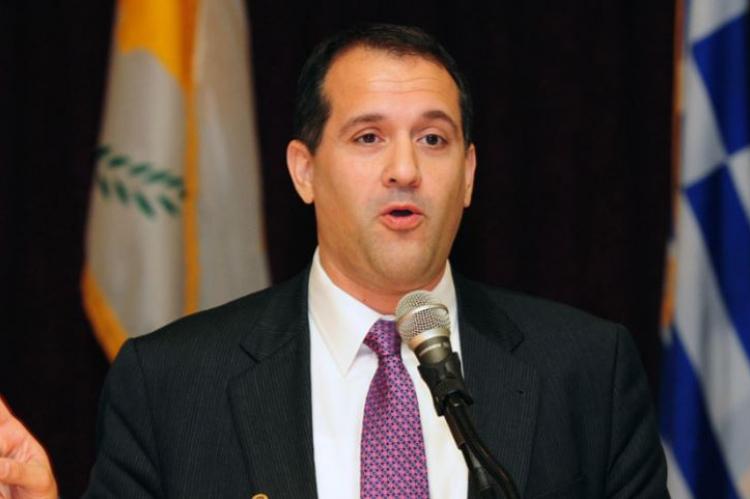Huffington Post writer warns ‘beware of Turkey’
2016-12-06 08:39 GMT
Posted in:
An article in the Huffington Post warns incoming US Administration to ‘beware of Turkey’
On 28 November, the Huffington Post published an article by Endy Zemenides of the Hellenic American Leadership Council entitled ‘This Holiday Season, Beware Of Turkey.’ In the article, Zemenides portrays Turkey as being as odds with both the west and a large section of its own population.
Zemenides posits that Turkey is on the “front lines of many flashpoints that the Trump Administration may encounter.” On the contrary, both Turkish President Recep Tayyip Erdogan and United States President-elect Donald Trump have expressed a mutual desire for a fresh engagement in relations between Turkey and the US. In a phone call congratulating President-elect Trump on his electoral victory, Turkish President Erdogan reportedly stated that Turkey and the US were allies with mutual goals and shared values.1 Michael T. Flynn, President-elect Trump's National Security Advisor, has also stressed the need for increased cooperation between Turkey and the US. In an article for Hill, Flynn stated that Turkey was the strongest ally of the US against DAESH and "source of stability in the region...it provides badly needed cooperation with US military operations."2
Emphasizing recent differences between Turkey and its NATO partners on a number of issues, Zemenides posits that Turkey may be causing additional problems for NATO. However, Turkish leaders have continually stressed the importance of Turkey to be treated as an equal partner in the NATO alliance and have called on NATO to continue to support Turkey’s struggle against terrorism.3 Turkey has furthermore called on NATO states to revise their policy of supporting the PKK’s Syrian wing, the YPG, arguing that the potential for a PKK-aligned state on Turkey’s border could cause instability. Furthermore, Turkey has launched its own operation in Syria to prevent the proliferation of terrorist organizations on its border.4
Zemenides continues by arguing that Turkey’s geopolitical position, not least Turkey’s “hostility towards Kurds," may result in difficulties for the incoming Trump administration. However, what Zemenides refers to as Turkey’s “hostility towards Kurds” is a prolonged struggle against armed organisations such as the Kurdistan Workers’ Party (PKK), which is internationally recognized as a terrorist organization by Turkey, the US and European Union.5 Fact Checking Turkey has previously noted that Turkish citizens of Kurdish origin remain prominent in all sections of society and are represented in both the government and the parliament. Turkish citizens of Kurdish origin are scattered all over Turkey, with an estimated 14 to 22.5 million Kurds living in various parts of the country, and 17.5 percent of the total Kurdish population residing in Istanbul alone.6
Claiming that Turkey is engaged in a “vindictive and wide ranging purge," Zemenides neglects to mention that on-going legal investigations and the current state of emergency in Turkey are conducted in line with the relevant laws and artices of the constitution.7 The continuing legal investigations are being conducted primarily into the Fethullah Gulen Terror Organisation (FETO), believed to be behind the 15 July coup attempt.8 Similarly, Zemenides claims of Turkey “jailing journalists” is a complex issue which Fact Checking Turkey has covered previously.9
Zemenides refers to the violation of airspace by the Turkish Armed Forces as a problem in the Aegean Sea between Greece and Turkey. This is mutual a problem in the Aegean due to the proximity of Greek and Turkish territories and arising mutual disputes relating to the precise definition of territorial waters. Occasional flare-ups of tension have included unarmed Turkish planes being locked onto by Greek F-16 fighter jets.10 Additionally, in line with international agreements with Greece and other partners,11 the Turkish Navy is active in the Aegean preventing the illegal entrance of refugees into Greece via Turkish territory.12
The article concludes with the claim that Turkey is “occupying” a portion of Cyprus. Turkey intervened in Cyprus in 197413 after the collapse of peace talks to prevent further loss of life under its role as a guarantor of the island’s Turkish Cypriot minority.14 The Turkish government argues that as the issues which necessitated the intervention have remain unresolved, Turkish soldiers should remain on the island until a peace settlement between the island’s Turkish and Greek communities is reached.15
- 1. http://www.dailysabah.com/diplomacy/2016/11/09/erdogan-congratulates-tru...
- 2. http://thehill.com/blogs/pundits-blog/foreign-policy/305021-our-ally-tur...
- 3. http://www.hurriyetdailynews.com/erdogan-pushes-for-support-against-terr...
- 4. http://www.dailysabah.com/war-on-terror/2016/11/26/operation-euphrates-s...
- 5. http://factcheckingturkey.com/kurdish-issue/claim-erdogan-declares-war-p...
- 6. http://factcheckingturkey.com/kurdish-issue/claim-turkey-seeks-cleaning-...
- 7. http://file.setav.org/Files/Pdf/20160809162358_the-declaration-of-the-st...
- 8. http://factcheckingturkey.com/failed-coup/claim-evidence-gulen-mastermin...
- 9. http://factcheckingturkey.com/press-freedom/claim-press-freedom-turkey-r...
- 10. https://m.dzkk.tsk.tr/guncelduyuru.php?id=192&dil=1&tdgg=0&blackseafor=0...
- 11. http://www.dailysabah.com/diplomacy/2016/03/14/turkey-greece-to-closely-...
- 12. http://www.tsk.tr/GunlukFaaliyetler
- 13. http://www.mfa.gov.tr/cyprus-_historical-overview_.en.mfa
- 14. http://www.mfa.gov.tr/how-did-the-greek-cypriots-persecute-the-turks-of-...
- 15. http://www.mfa.gov.tr/meaningful-anniversary-of-the-cyprus-peace-operati...



